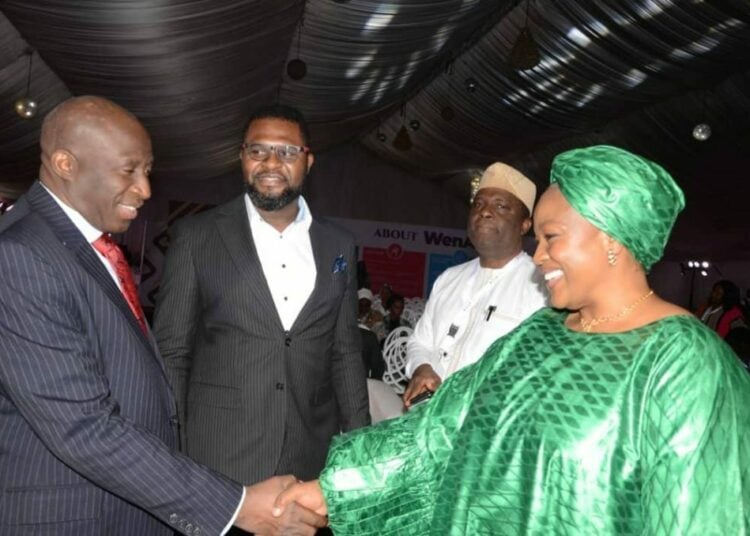Wthen the ecosystem for women entrepreneurs through targeted reforms aimed at reducing the cost of doing business, easing access to finance and creating gender-responsive policies that ensure inclusive economic growth.
Senior Special Assistant to the President on Entrepreneurship Development and Innovation in the Digital Economy, Ms. Chayla Shagaya, gave the assurance during her keynote address at the 5th Women Enterprise Alliance (WenA) Conference, held in Abuja with the theme: “Policy Reforms and Resilience Strategies for Small and Medium Enterprises in a New Economy.”
Shagaya emphasised that the federal government under President Bola Tinubu’s Renewed Hope Agenda sees women-led small and medium enterprises (SMEs) as “the quiet economists of every household” and a core pillar of Nigeria’s economy.
“Across Nigeria, women entrepreneurs are doing the hard work of keeping our economy alive, innovating, employing, and solving local problems with global relevance. 70% of public submissions on SME policy reforms were from women. Reducing the cost of doing business is not just an economic imperative; it is a moral obligation to those who believe in Nigeria enough to build her,” she said.
She highlighted government-led reforms such as the Presidential Power Initiative, digital financing pathways, and tax harmonisation efforts aimed at lowering operational costs for SMEs, many of which are owned and run by women.
According to her, the administration has also launched strategic partnerships with the Bank of Industry (BoI) and other financial institutions to improve access to affordable credit for female entrepreneurs who often face collateral-related barriers.
“You no longer need to bring your grandmother’s land title to secure a loan,” she said.
Shagaya also disclosed that an open digital feedback call she hosted received over 100,000 responses, with more than 70 per cent coming from women business owners.
“We aggregated those insights and submitted them to the presidency. This is no longer a time for policy on paper; it’s time for policy that reaches people where they are, especially the women at the heart of our enterprise sector.”
Delivering her address, Founder of WenA, Aisha Babangida, described the conference as a strategic gathering to accelerate the translation of national and global policy commitments into measurable outcomes for women-led enterprises.
She underscored the importance of advocacy, noting that many women still lack access to information, capital, and markets, and are often discouraged by rigid and complex regulatory frameworks.
“When I founded WenA, I thought passion was enough. But it wasn’t. The paperwork, the tax codes, the licensing rules, these were heavy even for those of us with networks. So imagine what it’s like for a woman starting a micro-business in a rural town with little support,” she said.
Aisha Babangida praised the work of UN Women Nigeria, particularly the success of the Affirmative Action Procurement Reform Initiative in Kaduna State, which has begun to reserve portions of public contracts for women-led enterprises, waived registration fees, and introduced female representation on procurement boards.
“Inclusive procurement is a game changer. It is not a concession to women, it is an economic strategy,” she noted.
She announced that WenA would launch a national certification programme to prepare women entrepreneurs to qualify for public sector contracts through proper documentation, compliance, and capacity-building.
“Our goal is not to highlight problems, but to unlock solutions. Today, we move from policy talk to practical tools. From exclusion to economic empowerment.”
In her presentation during the pre-conference policy workshop, Ms. Aisha Bendo-Alkali of UN Women Nigeria, spotlighted the urgent need to address the burden of unpaid care work, one of the major barriers limiting women’s full participation in the economy.
The initiative, supported by the African Development Bank (AfDB) and Women Entrepreneurs Finance Initiative (We-Fi), advocates for care-responsive policies and the integration of women’s economic empowerment into national planning.
“Reducing the burden of unpaid care is not just a gender equality goal, it is critical to unlocking national productivity,” she said.





